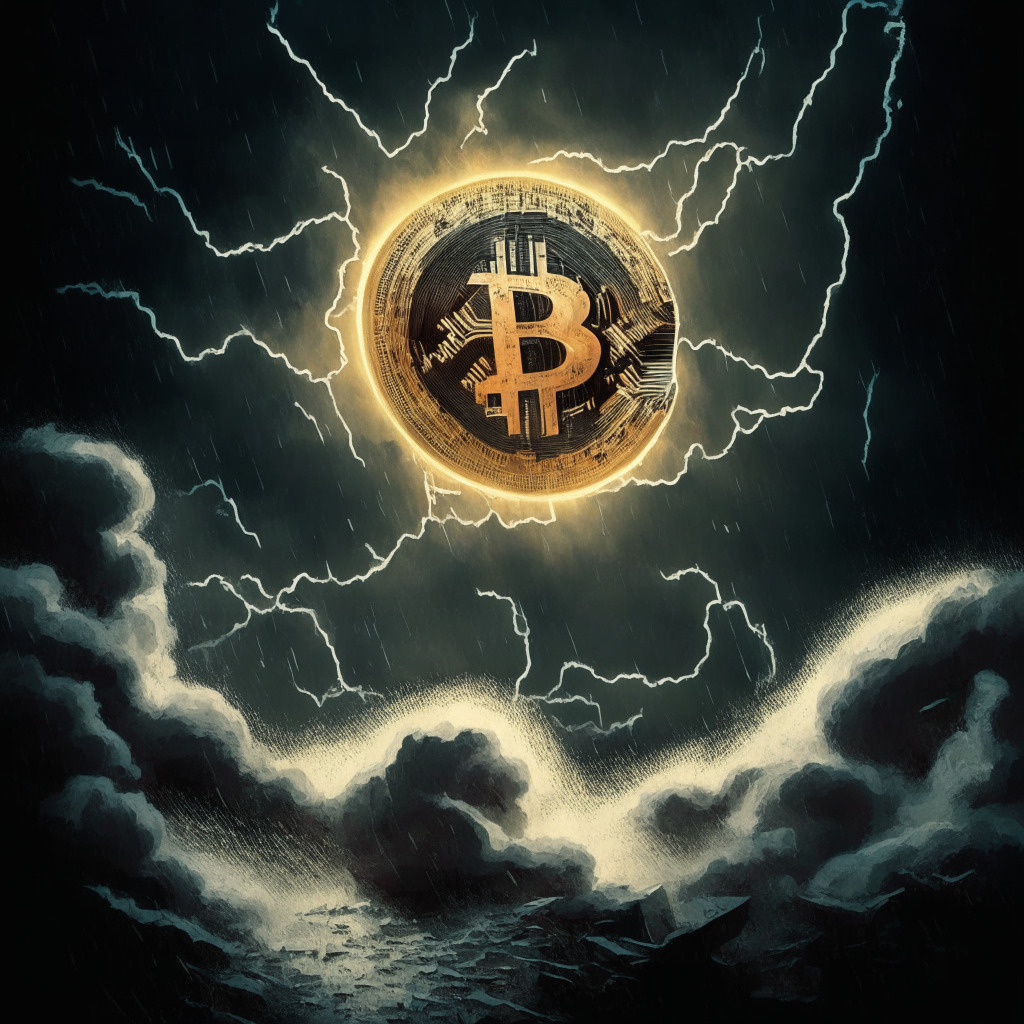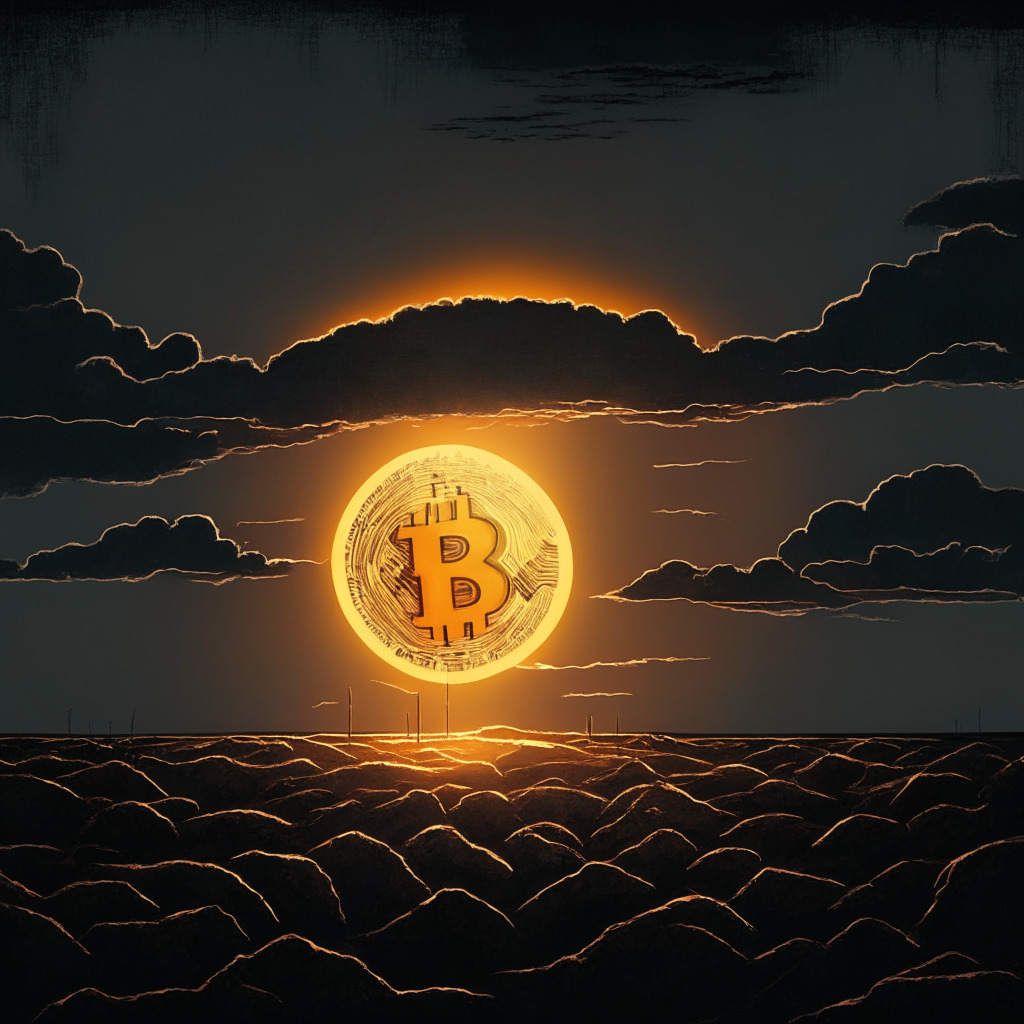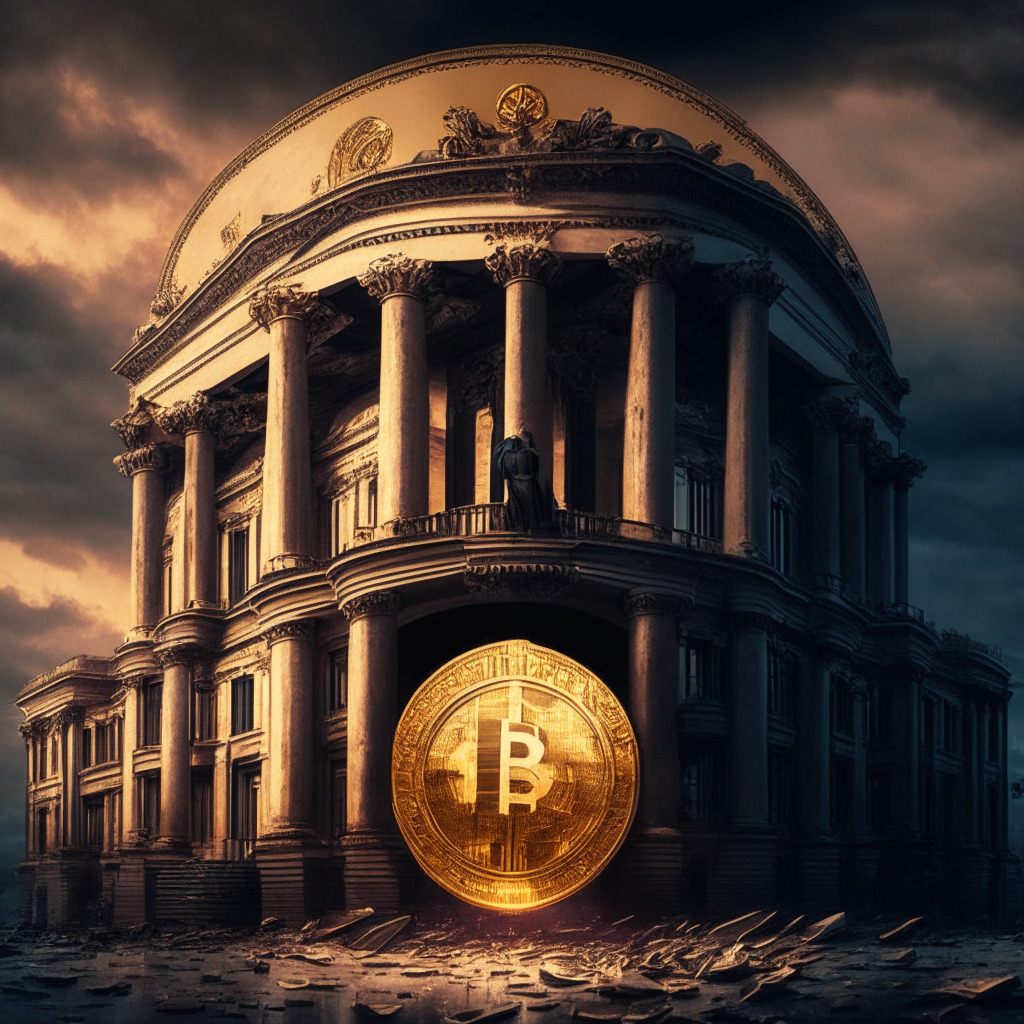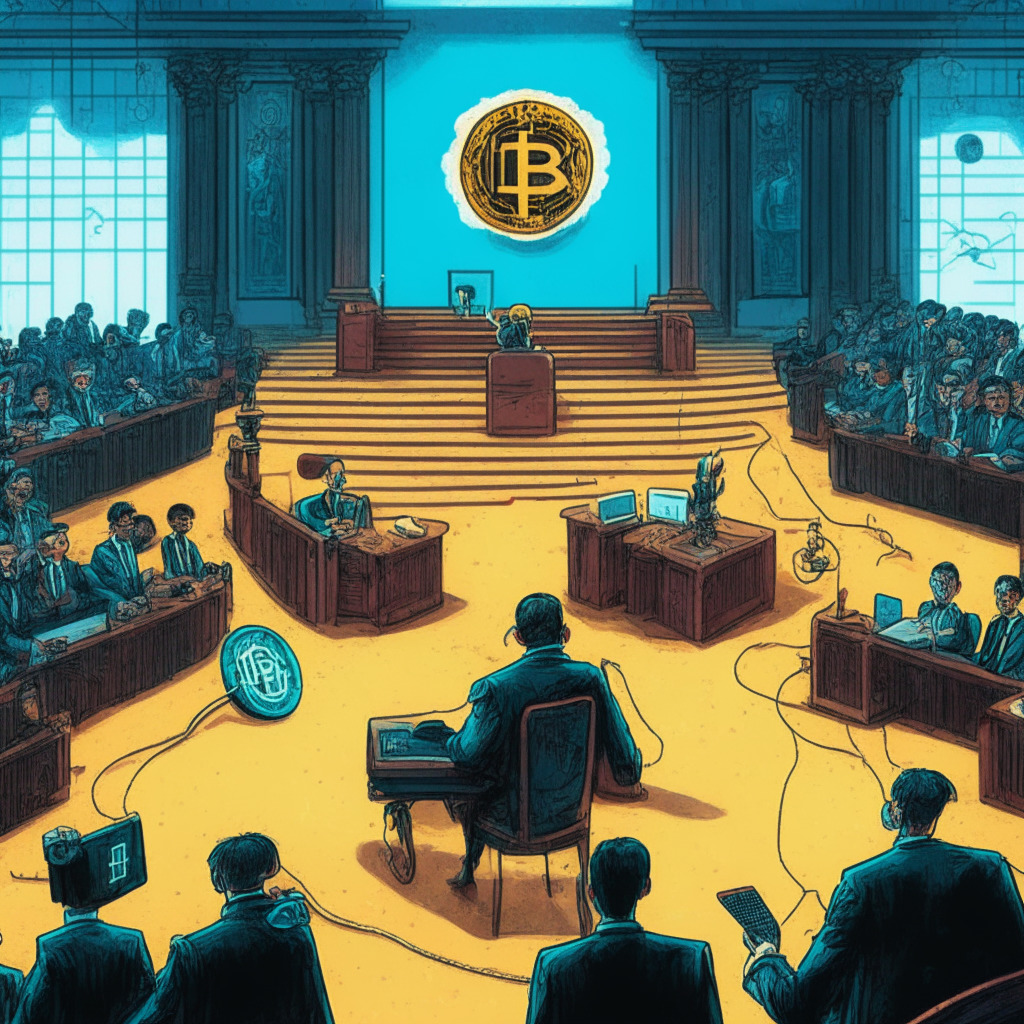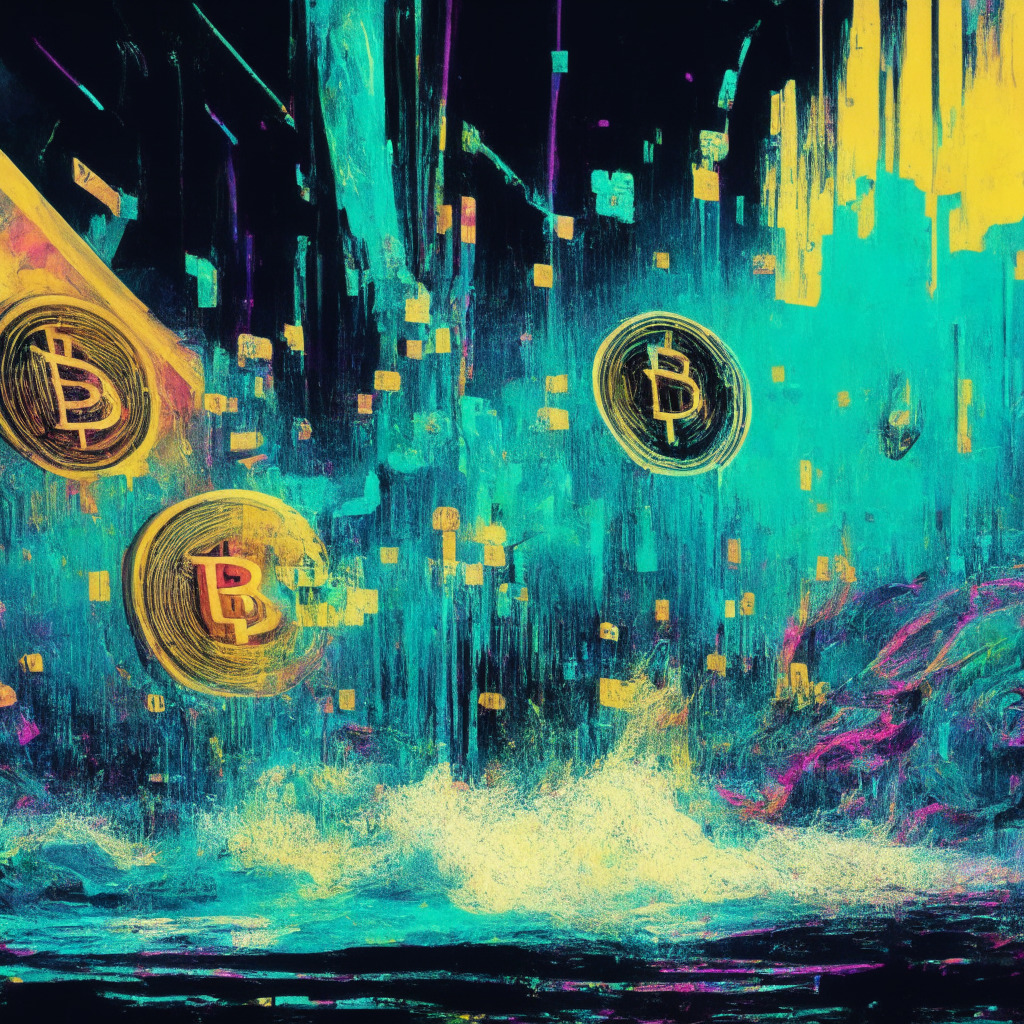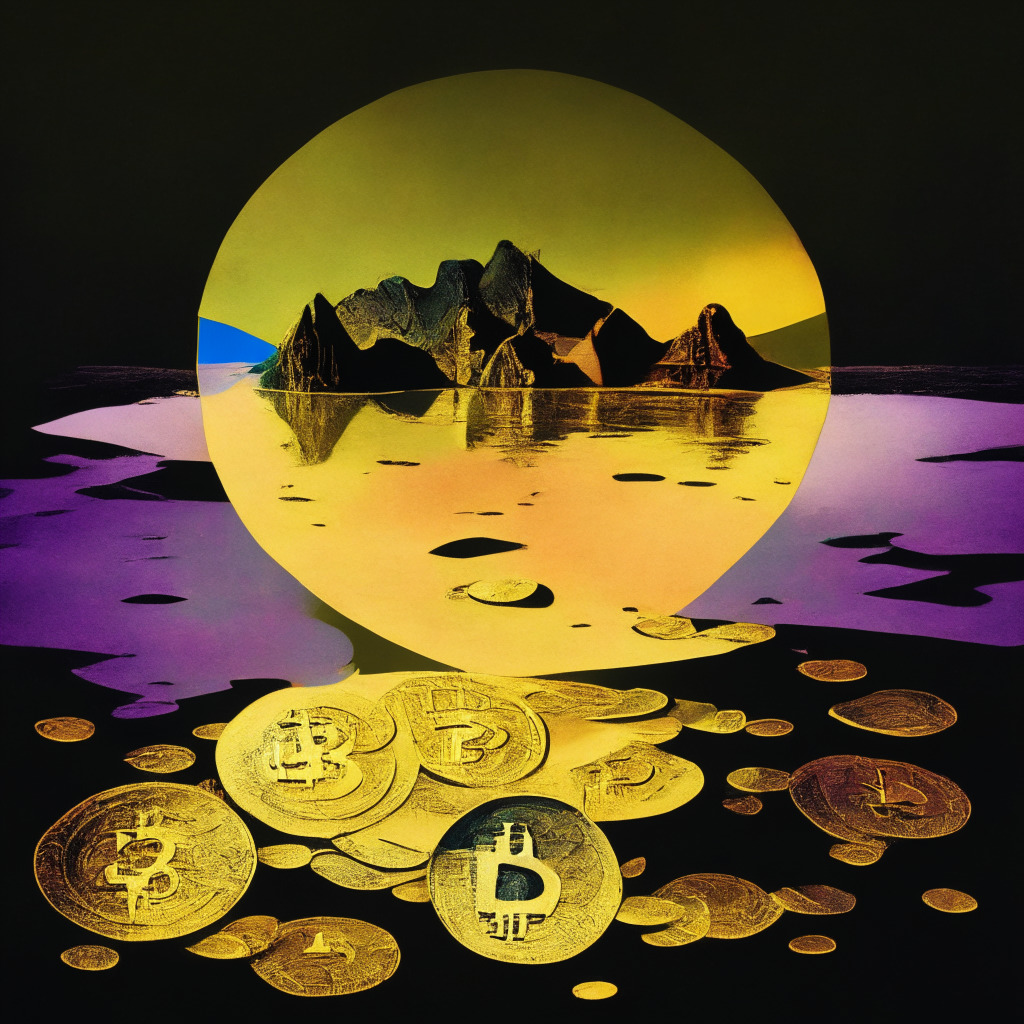“Despite the gloomy market sentiment and legal hurdles from SEC, market analysts forecast Bitcoin could hit the $22K mark. U.S. inflation drop and Federal Reserve’s liquidity drainage could push investors to alternative assets like Bitcoin. However, serious challenges still remain.”
Search Results for: Russia
The Impending Role of Blockchain: Will Digital Currencies Supersede Banks?
Russian legislator, Anatoly Aksakov, suggests the role of banks might diminish with advancements in blockchain technology, especially with the advent of the digital ruble. This technology presents a potential competitor to digital assets, raising concerns about financial stability. Aksakov believes this could render traditional banking obsolete, replacing human decision-making with automated actions.
Navigating the Labyrinth of Crypto Regulations: A Dual Perspective on Blockchain Progress and Safety
“In the realm of crypto regulations, authorities are tightening grips to mitigate potential risks. The situation sheds light on the increased scrutiny towards prominent crypto figures while emphasizing the importance of regulatory measures. Meanwhile, the emergence of blockchain and digital currencies surfaces concerns about impacting traditional banking systems, creating regulatory complexities.”
Labor Day Market Fluctuations: Bitcoin Declines but Solana Shines
Following Bitcoin’s recent dip to $25,700, market uncertainty pervades, driven by SEC’s delay of other Bitcoin ETF applications like BlackRock and Fidelity. Factors such as decreasing trading volume, multi-year lows in Google search trends, and record low volatility point towards a prevailing indifferent attitude. Nevertheless, with Solana’s SOL token rising and Visa’s initiative to expand settlement capabilities on blockchain, optimism still persists in crypto space.
Fostering the Future with CBDCs: Bank of China and Meituan Go Beyond E-Commerce
“Bank of China and Meituan are strategically collaborating to boost their Central Bank Digital Currency (CBDC) capabilities, venturing into CBDC-powered corporate services and potential offline and non-smartphone accessible use of the digital yuan. Despite the promising blockchain future, hurdles like digital divide, regulatory issues, and security concerns could arise.”
Approaching $22,000 BTC Amid Bearish Derivatives and Uncertain Regulations
“Recent data on Bitcoin futures highlights a potential correction to a $22,000 BTC. This is amid bearish derivate trends and U.S. regulatory uncertainties including postponed BTC ETFs and potential indictment of leading cryptocurrency exchanges Binance and Coinbase by the DOJ.”
Ethereum’s Staking Limit, Argentina’s Bitcoin Surge, and Blockchain Security: Weekly Crypto Roundup
“In an evolving crypto landscape, Ethereum staking providers limited their ownership to 22%, towards decentralization. Bitcoin adoption rises in Argentina contrasting El Salvador’s caution. Binance addresses regulatory environment while security concerns persist despite OpenZeppelin’s Defender 2.0 upgrade. NFTs, CBDCs progress, and stricter crypto regulations emerge.”
Infamous Chisel Malware: A Wake-Up Call for Crypto Security on Android Devices
New malware, Infamous Chisel, targets Android users involved in cryptocurrency transactions, extracting private keys and information from applications such as Binance, Coinbase, and others. Its ability to access extensive data, though not highly sophisticated, emphasizes the importance of robust security measures.
Infamous Chisel vs Blockchain Innovation: A Tug-of-War in the Crypto Space
“The Russian malware, Infamous Chisel, is presently threatening cryptocurrency wallets and exchange applications, specifically targeting Brave browser, Binance and Coinbase exchanges, and Trust Wallet. The malware provides persistent access to infected Android devices, constantly extracting valuable information. Alchemy’s recent support for Base opens new opportunities for blockchain development.”
Infamous Chisel Malware: The Hidden Threat to Crypto Wallets on Android Devices
“Crypto wallet owners are warned of a new malware, “Infamous Chisel,” linked to the Russian military intelligence agency. It targets Android devices, primarily Binance, Coinbase and Trust wallet applications, posing a significant threat to crypto security.”
NFT God’s Recovery Journey: A Tale Of Theft, Vigilance and The Shift In Market Dynamics
Crypto personality, NFT God, managed to recover part of his digital assets, originally stolen in a hacking incident, thanks to Binance’s security team. The incident highlights both the risks within the digital marketplace and the ongoing need for enhanced cybersecurity vigilance for anyone involved in crypto and NFT trading.
Exploring the Benefits and Risks of Nexo’s Crypto Mastercard for EEA Citizens
Bulgarian platform Nexo launches a crypto Mastercard for European Economic Area (EEA) citizens to spend stablecoins globally via 100 million merchant terminals. The card also offers annual interest on stored balances, cashback, and credit line usage perks. However, Nexo recently faced legal issues in Bulgaria, raising concerns about its corporate governance. Further, earning potential is tied closely to the volatile crypto market.
Crypto Updates: The Volatility of Friend.tech, Growing Pains of Shibarium, and Perils of DeFi Platforms
“The crypto market remains a blend of promise, innovation and uncertainty. Understanding the nuances of the technology and markets is vital for investors. Emerging trends and regulatory scrutiny constantly shape exchanges like Binance, while projects like Shibarium highlight the potential volatility of platforms.”
Binance Quietly Removes Banco de Venezuela: Blockchain Freedom Versus Economic Sanctions
Cryptocurrency exchange Binance has silently removed Banco de Venezuela from its P2P service list, mirroring U.S Treasury-imposed financial sanctions. The move raises concerns among Venezuelan crypto enthusiasts, notably because the bank plays a crucial role in Venezuela’s digital currency ecosystem. Despite the silent removal, users can reportedly circumnavigate the ban due to the P2P nature of the services.
Navigating the Gray: Binance, Grayscale, and the Uncharted Legal Landscape of Crypto
“Binance, a leading cryptocurrency exchange, faces possible legal action from the US Securities and Exchange Commission (SEC), potentially linked to violations of sanctions involving Russia. Meanwhile, the SEC and Grayscale experience a landmark clash, highlighting evolving regulatory issues and the role of self-regulation in preserving the balance between financial freedom and investor protection in crypto markets.”
Navigating Regulatory Shifts: Binance’s Shift, Impact Theory’s Legal Woes, and Emerging Blockchain Innovations
“Binance’s Belgian users can now dodge local regulations by accessing the platform via its Polish branch. This resourceful solution permitted them to continue operations within the European Economic Area after the parent company ceased. However, due diligence is important. On the other hand, Venezuela’s key banking institution has been removed from Binance’s P2P payment options due to alleged international financial sanctions.”
Sanction Enforced: Binance Removes Banco de Venezuela from P2P Services
“In a move to enforce international financial sanctions, Binance, the world’s largest crypto exchange, has eliminated a payment method attached to Banco de Venezuela from its P2P trading service. This action reflects the limited room for maneuver that global crypto exchanges have amidst international sanctions and raises questions about the extent to which the promises of cryptocurrencies hold true in a regulated market.”
Navigating the Choppy Waters: Binance’s Launch of T+3 Daily BNB Options & Its Market Implications
Binance Options is set to introduce “T+3” daily call and put contracts related to BNB, a cryptocurrency intrinsically linked with the exchange itself. Essentially, these options can be traded two days prior to expiry, initially offering a lifetime of three trading days from their introduction, promoting increased flexibility in cryptocurrency markets. This move also reflects Binance’s positive outlook towards the future of cryptocurrency markets.
Unravelling the Blockchain Future: Justice, Global Sanctions, Charity Initiatives, Twitter Vulnerability, and Investment Trends
“In the face of persistent complications, the future of blockchain teeters precariously between pathbreaking transformation and a potential bubble. Blockchain’s breathtaking scope and opportunities invariably throw up a set of challenges for us to navigate. Our choices shape the blockchain of tomorrow.”
A Rollercoaster Crypto Week: Triumphs, Tribulations, and the Quest for Unchartered Territories
“In a dynamic crypto week marked by revenue surges, privacy breaches, and promising tech advancements, we also see virtual activism in Metaverse, innovative crypto-related services, and increasing institutional embrace of digital assets. However, challenges persist with regulatory complexities and cyber threats.”
Binance Controversy: Balancing Digital Freedom and International Sanctions Compliance
Binance, a popular cryptocurrency exchange, circumvented sanctions on two Russian banks by renaming them for local payment options. Critics argue this move may increase regulatory control over crypto markets. Meanwhile, supporters believe it demonstrates crypto’s independence from traditional financial systems and governmental interference. Binance’s actions have raised questions about crypto exchanges’ responsibility to respect international regulations.
Convulsions in Crypto: Bitcoin Ordinals’ Plummet, OpenSea’s Dutch-stop, and Frend.tech’s Rapid Growth
“Significant fluctuations in the crypto world have been noted, with Bitcoin Ordinals experiencing a drop in trading volume and OpenSea disabling its on-chain royalty enforcement tool. Meanwhile, new decentralized social media platform, Frend.tech, has seen rapid growth, raising queries about its sustainability.”
Navigating Stormy Waters: Binance, Sanctions and the Quest for Cryptocurrency Regulation
“Binance, a leading cryptocurrency exchange, faces allegations of facilitating transfers to sanctioned Russian lenders. The platform allegedly allowed P2P transactions via institutions like Rosbank and Tinkoff Bank without setting trading limits. Additionally, Binance is tangled in legal issues with regulators like the CFTC and SEC, intensifying concerns around regulatory compliance in crypto transactions.”
Debating Atomic Wallet’s $100M Breach: A Case of Non-Disclosure or Timing?
A group of high-net-worth investors have filed a class-action lawsuit against Atomic Wallet, alleging improper information disclosure surrounding a security breach that resulted in a $100 million loss. The unclear nature of the breach and lack of comprehensive response from the company has increased investor unease and set a concerning precedent for the cryptocurrency sector.
Navigating Market Drops and Community Building: Reassessing Crypto’s Future Prospects
“Amid Bitcoin’s drop to $26,000, there is no evidence of professional traders turning bearish, suggesting a less prolonged correction period. Meanwhile, post-crash Bitcoin futures show a healthy demand equilibrium. The article also introduces Iman Europe’s Web3-based project that envisions a supportive space for artists in the music industry, underlining crypto’s potential beyond mere profit-making.”
Market Highs and Lows: Bitcoin’s Latest Slide, the Dipping Drama of BNB, and Australia’s CBDC Stance
Bitcoin experienced a dip under the $26,000 mark, with enthusiasts awaiting the outcome from the Jackson Hole central bankers’ meeting. Meanwhile, the Binance-linked cryptocurrency BNB plunged significantly due to increasing regulatory pressure and investor concerns over a troubled BNB-backed loan.
Atomic Wallet Hack 2023: Unravelling the Crypto Security Dilemma Amid Rising Concerns
“The Atomic Wallet incident resulted in losses of a considerable $100 million, with recent accusations implying a Ukrainian group’s involvement. The breach situation is vague, with potential causes ranging from malware, an internal breach, to a man-in-the-middle attack. This highlights the crypto industry’s insecurity and the need for comprehensive security measures and regulation.”
BNB Value Dips Amid Binance Controversies: Ripple Effects & Possible Solutions
“The BNB crypto token has experienced a decrease in value due to Binance’s questionable activities and increasing legal scrutiny, affecting its $32 billion market position. Binance’s involvement with offshore funds movement amid international sanctions has heavily impacted BNB’s value and broader digital currency markets.”
Banking on the Digital Ruble: Heralding a New Era or Stoking Controversy?
The Russian Central Bank’s proposal classifies the digital ruble, as a “high-quality liquid asset”. This could usher a dramatic reconfiguration of how financial institutions perceive and maintain liquid assets, potentially revolutionizing cross-border payment methods. However, this shift is viewed with apprehension among commercial banks.
Future of Gold-Backed BRICS Currency: A Dream or Reality? Debating Pros, Cons, and Bitcoin Effect
“Macroeconomist Lyn Alden argues against the feasibility of a forthcoming gold-backed BRICS currency, citing it a tough challenge for BRICS members. Doubts are raised about the model backing a fractional-reserve banking system with gold.”
Exploring the New Horizons: How Crypto Miners Diversify Revenue Streams into AI Market
“Bitcoin and Ether miners are branching into new business areas including high performance computing services for the artificial intelligence industry, seeking to diversify revenue and reduce crypto reliance. This follows the Ethereum blockchain Merge, leaving a surplus of GPUs on the secondary market, used for gaming, rendering services and mining other cryptocurrencies.”
The Dollar’s Tenacity: How Its Resilience Could Influence Bitcoin’s Pricing Trajectory
“Recent currency instability in China, Russia, and Argentina has cast doubt on de-dollarization, potentially affecting Bitcoin’s pricing trajectory. The stability of the USD forces struggling nations to rethink their financial strategies. This, coupled with unpredictability of cryptocurrencies like Bitcoin, underscores the need for careful investment and staying updated with currency trends.”
